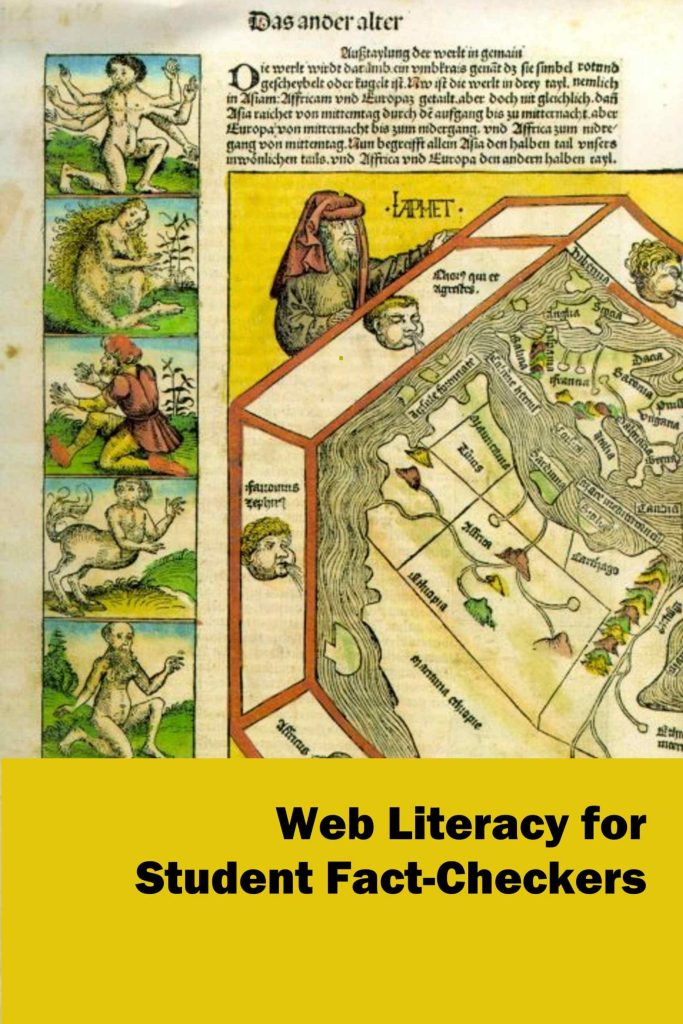Data, Background Info, & Report Websites
An important facet of fact-checking is knowing where to find accurate information. The sites below are generally trustworthy on a wide range of topics.
-
Census Bureau DataStatistics about American population, housing, industry, and business; create reference and thematic maps, and search for specific data
-
Bureau of Labor StatisticsCheck BLS announcements or set up an email alert for new reports.
-
CIA -The World Factbook This link opens in a new windowInformation on countries and other world entities
-
EurostatA huge database covering all sorts of indicators for EU Member States and candidate countries. Most of the data sets are submitted to Eurostat from national statistical authorities.
-
Gallup PollingPublic opinion polls often referenced by the media. Polls are both national and international in scope and are used to identify opinion trends over time.
-
Google News InitiativeVerification tools, image searching, geosearching and more.
-
IMF World Economic OutlookEconomic and financial data for countries around the world and predictions for the years ahead. Updated twice a year, in April and October.
-
Internet Archive (archive.org)Includes texts, audio, moving images and software as well as archived web pages (The Wayback Machine), the TV Political Internet Archive, and more
-
IPU Parline DatabaseData on Parliaments around the world including date of election, structure, composition, gender balance.
-
National Health Interview SurveyNHIS data on a broad range of health topics, collected through personal household interviews, used to track health status, health care access and progress toward achieving national health objectives
-
National Security ArchiveResearch on world affairs; declassified documents on security issues around the world.
-
Open SecretsA watchdog group founded by the Center for Responsive Politics and the National Institute on Money in Politics
-
Pew Research CenterA nonpartisan fact tank that informs the public about the issues, attitudes and trends shaping the world.
-
Poynter Institute for Media StudiesNews highlights dedicated to teaching and inspiring journalists and media leaders.
-
RefdeskA searchable index of websites that have been reviewed for quality and credibility.
-
SIPRI DatabaseData on military spending, arms transfers.
-
U.S. Customs and ImmigrationYearly “snapshots” of agency activities, statistics on “unaccompanied alien children,” “Use of Force” reports and more.
-
World Bank: Countries & EconomiesGraph, map and compare more than 1,000 time series indicators from the World Development Indicators
-
World Health OrganizationThe data repository contains statistics on tuberculosis, child mortality rates, tobacco control and more, in six languages.
-
World Resources Institute's CAIT Climate Data ExplorerData on emissions of greenhouse gases by country.
Resources for Evaluating Sources
-
Evaluating SourcesCheck out the library's guide to understanding information sources, including detecting and avoiding fake news.

"Recap: Gravity Falls "Headhunters," (2015). newtcave.blogspot.com
Practice Analyzing an Article
-
Admiral Byrd's Operation HighjumpLet's determine whether or to what extent this article is trustworthy.
Recommended Books
-
 Web Literacy for Student Fact Checkers
by
Designed to "help you become “web literate” by showing you the unique opportunities and pitfalls of searching for truth on the web. Crazy, right? This is the instruction manual to reading on the modern internet."
Call Number: Ebook (Free and Open)Publication Date: 2017, updated 2021
Web Literacy for Student Fact Checkers
by
Designed to "help you become “web literate” by showing you the unique opportunities and pitfalls of searching for truth on the web. Crazy, right? This is the instruction manual to reading on the modern internet."
Call Number: Ebook (Free and Open)Publication Date: 2017, updated 2021 -
Verified: How to Think Straight, Get Duped Less, and Make Better Decisions about What to Believe Online by
Call Number: ZA4065 .C38 2023An indispensable guide for telling fact from fiction on the internet--often in less than 30 seconds. -
Asking the Right Questions: A Guide to Critical Thinking by
Publication Date: 2006This highly popular text helps students bridge the gap between simply memorizing or blindly accepting information, and the greater challenge of critical analysis and synthesis.
